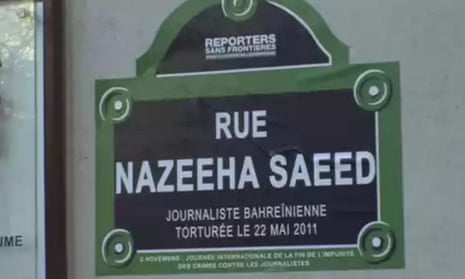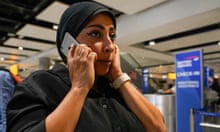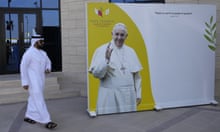The Bahraini authorities have stepped up their pressure on Nazeeha Saeed, the France24 correspondent who was detained and tortured 2011.
She has been prosecuted for “illegal reporting” on behalf of foreign media in what appears to be a renewed crackdown on free expression.
Saeed was called to the public prosecutor’s office yesterday (17 July) and charged under a press law that prohibits Bahrainis from working for foreign media outlets without a licence.
Annual licences are granted by the information affairs authority (IAA) and their renewal can be arbitrary. Saeed was refused a licence earlier this year when hers expired. She faces a fine of up to 1,000 Bahraini dinars (£2,000).
Nor can Saeed leave the country. Bahrain’s authorities have imposed a travel ban on her, which she reported on Twitter on 29 June after she was prevented from boarding a flight.
Saeed has reported for Radio Monte Carlo for 12 years and for France24 for seven years. Despite her last licence not being renewed she continued to work as a correspondent.
In May 2011, Saeed was tortured by police for reporting on the events of the Arab Spring in Bahrain. In November 2015, Bahrain’s authorities decided not to prosecute her torturers. To mark that year’s International Day to End Impunity for Crimes against Journalists, the press freedom watchdog, Reporters Without Borders, renamed the Parisian street where the Bahraini embassy is located as Rue Nazeeha Saeed.
Other journalists working for foreign outlets have told the Bahrain Institute for Rights and Democracy (Bird) that they have been facing increased pressure in the last year.
Bird’s director of advocacy, Sayed Ahmed Alwadaei, said: “Bahrain is making real journalism impossible. Nazeeha Saeed is a leading reporter, and that is why they are trying to silence her. Bahrain’s international allies, the UK and US, must condemn this regressive assault on the fourth estate.”
Press freedom is not recognised in the small oil-rich Persion Gulf island. Freelancers and citizen journalists are not considered to be journalists, and it is a criminal offence to report news which “offends” the Bahraini government, which is controlled by a single family, the Al-Khalifas.
The Committee to Protect Journalists reported in December 2015 that there are five journalists in prison in Bahrain, all of them freelancers.
At the weekend, a Bahraini court dissolved the Al-Wefaq political society, the largest political organisation in the country, at the justice ministry’s request.










Comments (…)
Sign in or create your Guardian account to join the discussion